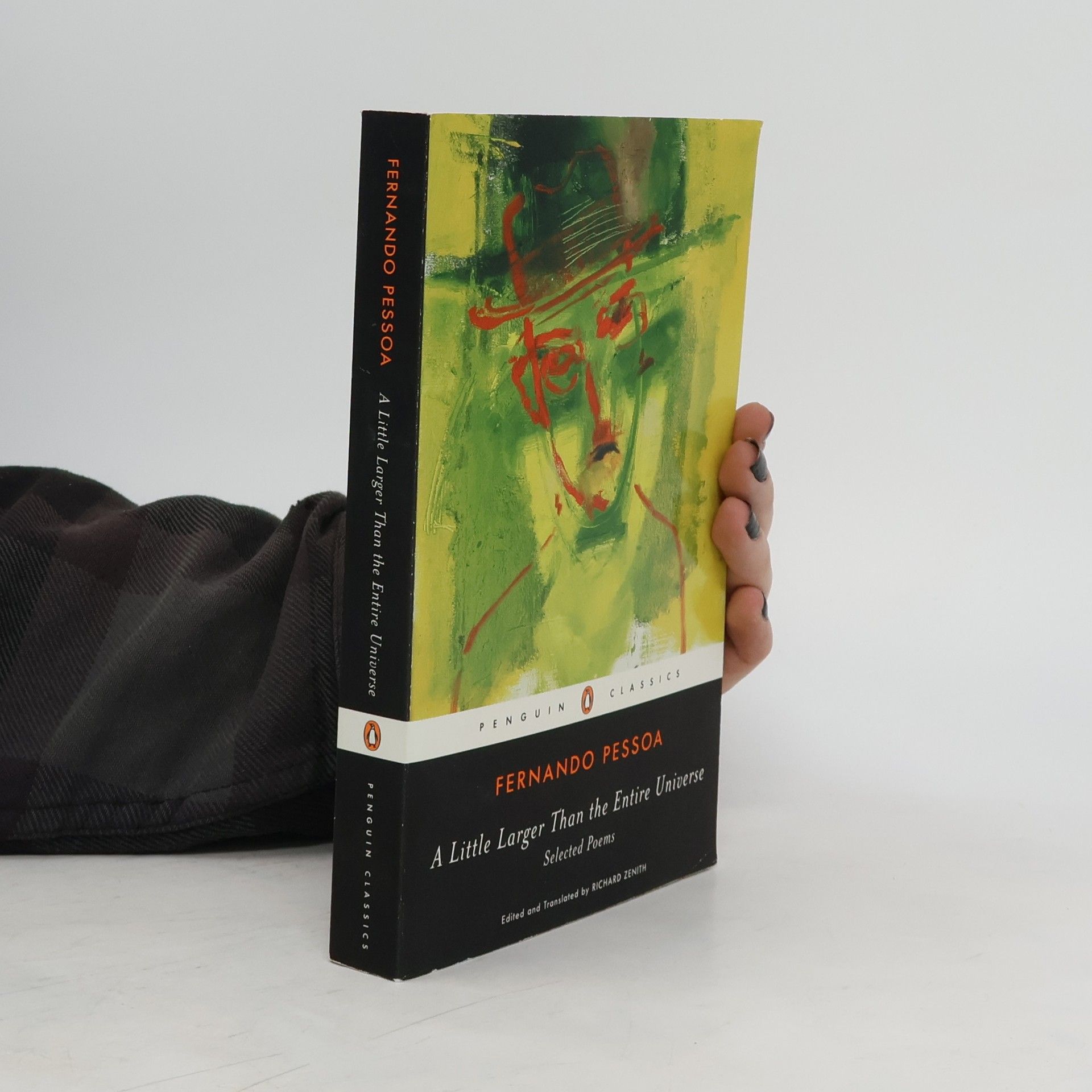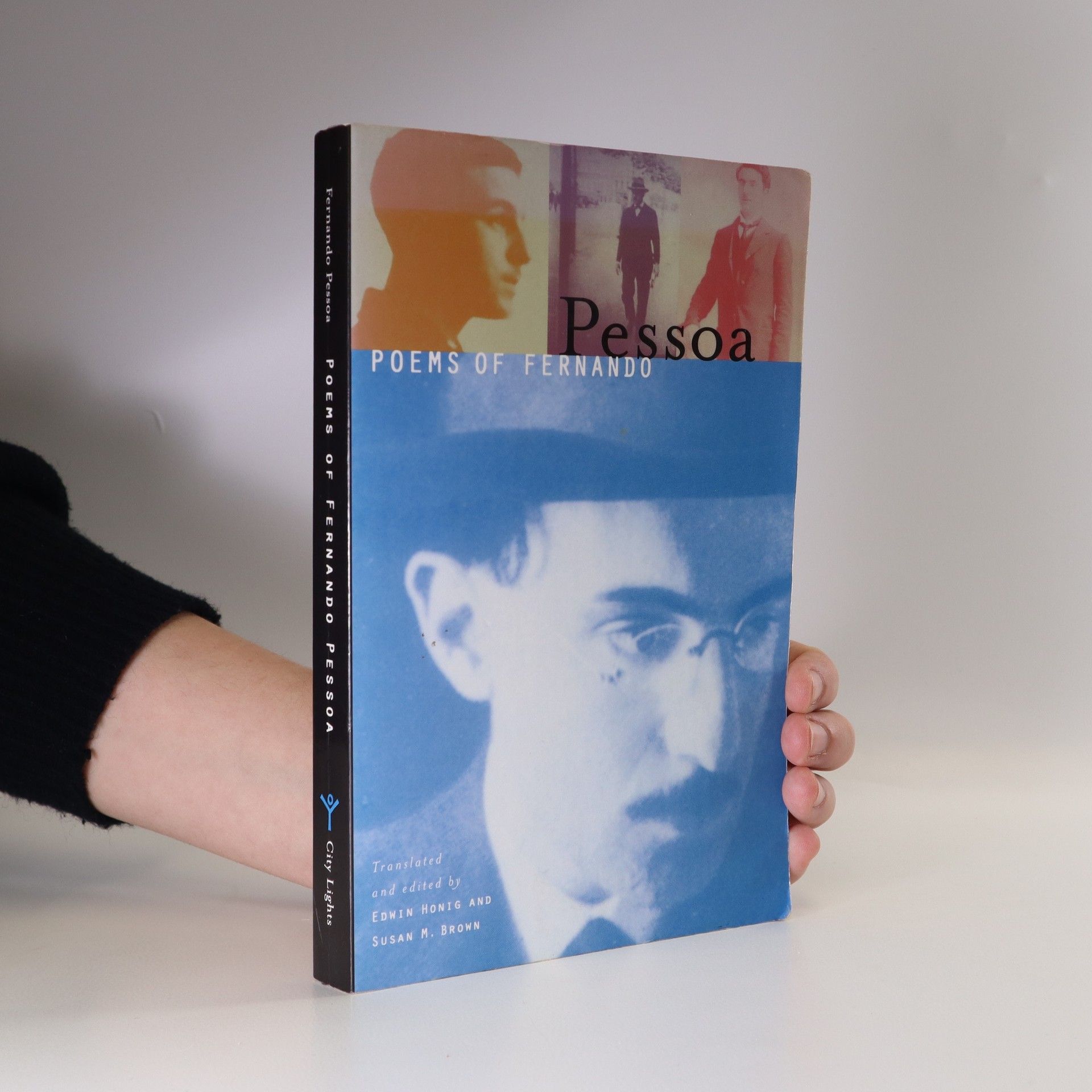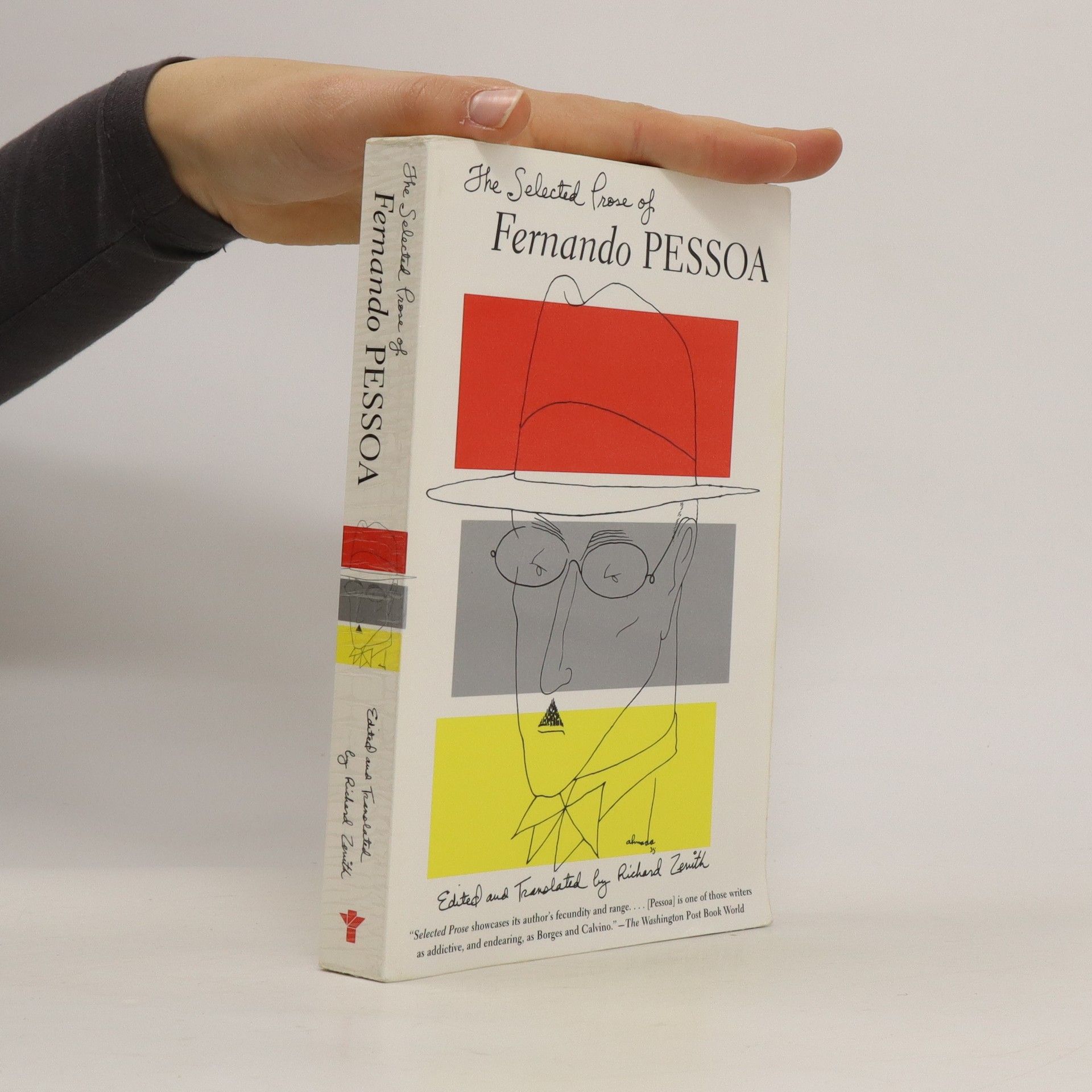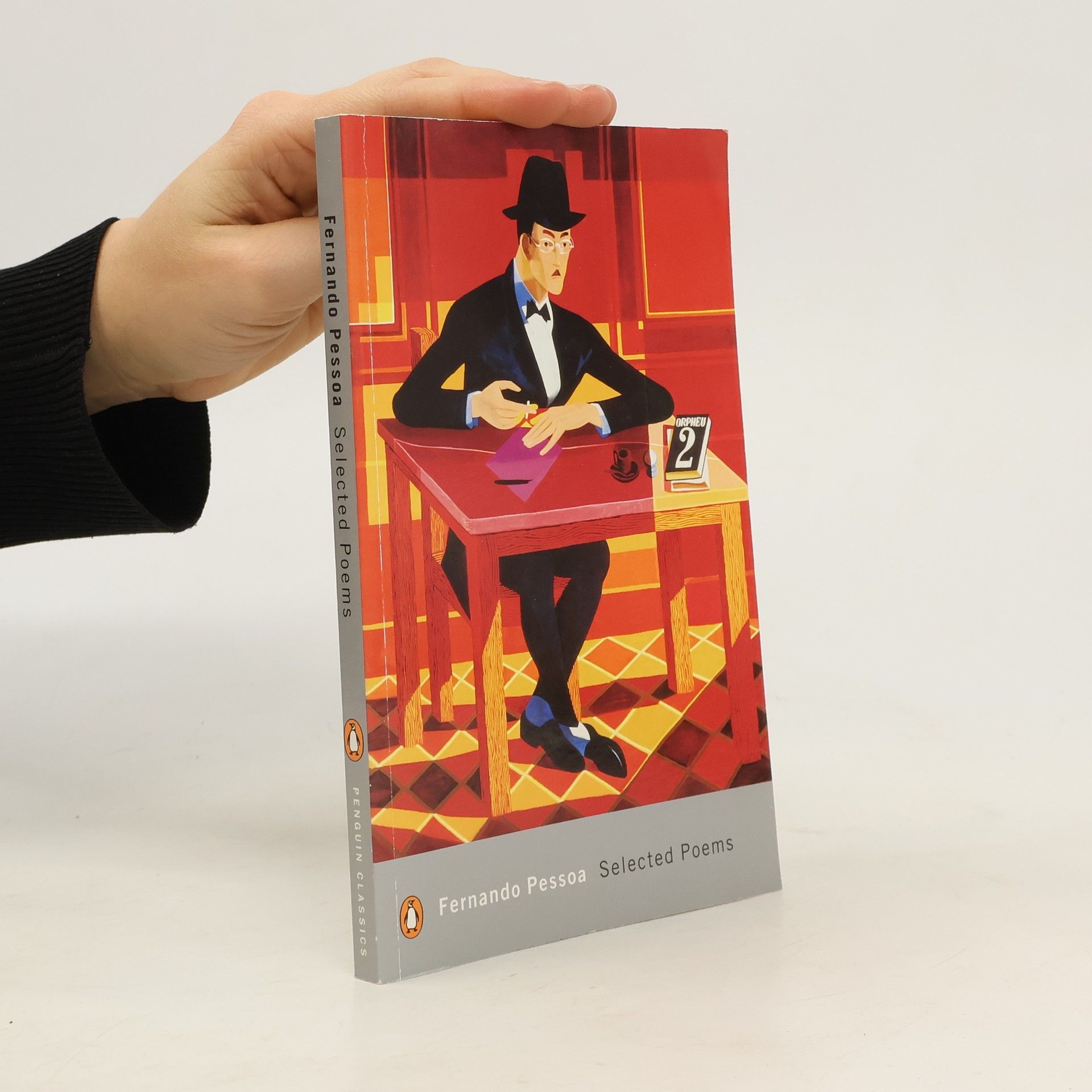Fernando Pessoa is Portugal's most important contemporary poet. He wrote under several identities, which he called heteronyms: Albet Caeiro, Alvaro de Campos, Ricardo Reis, and Bernardo Soares. He wrote fine poetry under his own name as well, and each of his "voices" is completely different in subject, temperament, and style. This volume brings back into print the comprehensive collection of his work published by Ecco Press in 1986.
Fernando Pessoa Books
Fernando Pessoa was a Portuguese poet and writer, widely regarded as one of the foremost literary figures of the 20th century. He is celebrated for his pioneering use of 'heteronyms' – distinct literary personalities with their own unique styles, philosophies, and temperaments, allowing him to explore a vast range of poetic expression. Each heteronym, such as Alberto Caeiro, Ricardo Reis, and Álvaro de Campos, offered a different voice and worldview, contributing to a multifaceted and profound body of work. Pessoa's innovative approach to authorship created a rich tapestry of Portuguese literature.







The book features the remarkable poetry of Fernando Pessoa, a key figure in modern European literature, known for his unique alter egos: Alberto Caeiro, Ricardo Reis, and Álvaro de Campos. This updated edition collects his most significant works, showcasing a range from minimalism to exuberance. Translator Richard Zenith highlights Pessoa's innovative exploration of human consciousness and his profound impact on 20th-century poetry, emphasizing both the depth and humor found in his writing.
The Book of Disquiet
- 262 pages
- 10 hours of reading
A prize-winning international classic, first published in English in 1993, now with a new foreword by William Boyd.
'Forever Someone Else' offers a selection of the poetry written by Pessoa under his own name and in the names of the personas he called 'heteronyms' - Alberto Caeiro, Ricardo Reis and Álvaro de Campos.
The Complete Works of Alberto Caeiro
- 320 pages
- 12 hours of reading
A bilingual companion to The Book of Disquiet, by Fernando Pessoa
The largest and richest English-language volume of poetry from “the greatest twentieth-century writer you have never heard of” (Los Angeles Times) Edited, Translated, and with an Introduction by Richard Zenith, the author of the Pulitzer Prize finalist Pessoa: A Biography A Penguin Classic Writing obsessively in French, English, and Portuguese, poet Fernando Pessoa (1888–1935) left a prodigious body of work, much of it credited to three “heteronyms”―Alberto Caeiro, Ricardo Reis, and Alvaro de Campos―alter egos with startlingly different styles, points of view, and biographies. Offering a unique sampling of his most famous voices, this collection features Pessoa’s major, best-known works and several stunning poems that have come to light only in this century, including his long, highly autobiographical swan song. Featuring a rich body of work that has never before been translated into English, this is the finest introduction available to the stunning breadth of Pessoa’s genius.
The Selected Prose of Fernando Pessoa
- 342 pages
- 12 hours of reading
The Washington Post Book World has written that Fernando Pessoa was "Portugal's greatest writer of the twentieth century [though] some critics would even leave off that last qualifying phrase" and "one of the most appealing European modernists, equal in command and range to his contemporaries Rilke and Mandelstam." The Selected Prose of Fernando Pessoa, a Los Angeles Times Best Book of 2001, spans playful philosophical inquiry, Platonic dialogue, and bitter intellectual scrapping between Pessoa and his many literary alter egos ("heteronyms"). The heteronyms launch movements and write manifestos, and one of them attempts to break up Pessoa's only known romantic relationship. Also included is a generous selection from Pessoa's masterpiece, The Book of Disquiet, freshly translated by Richard Zenith from newly discovered materials. The Selected Prose of Fernando Pessoa is an important record of a crucial part of the literary canon. "Zenith's selection is beautifully translated, compact while appropriately diverse." -- Benjamin Kunkel, Los Angeles Times "[Pessoa] is one of those writers as addictive, and endearing, as Borges and Calvino." -- Michael Dirda, The Washington Post Book World
Selected Poems
- 160 pages
- 6 hours of reading
Contains poems that features four separate personae who have their own poetic identity. This title contribute to the 'mysterious importance of existence'. schovat popis
Poetry - Minimal Anthology
- 320 pages
- 12 hours of reading
THE MOST CONCISE ANTHOLOGY OF THE VASTEST OF POETS This book is an invitation to «unlearn Pessoa,» to use an expression by the master, Alberto Caeiro, and to read him as if we had just discovered him. Contrary to a recent tendency to locate the poet in a new setting—less literary and cultural, more urban and utilitarian—this Minimal Anthology proposes the discovery or rediscovery of Fernando Pessoa through some of the twentieth century’s most astonishing poems: from «Maritime Ode» to «Tobacco Shop,» moving through «Slanting Rain,« «The Monster,» «The Keeper of Flocks,» «Opiary,» «Autopsychography,» and many lesser‑known poems, all of them revealing a genius that continues to elicit shock, delight, and admiration. The essential poetry of Fernando Pessoa and his principal heteronyms, in an edition by Jerónimo Pizarro. Also available in Portuguese.



